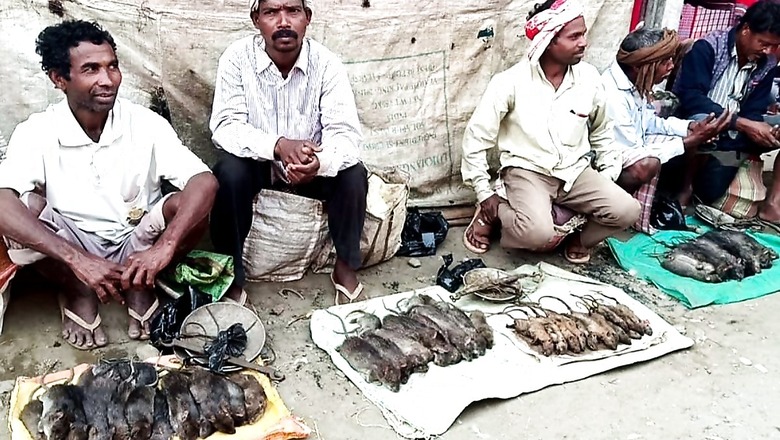
views
Marketplaces in the Kumarikata village of Assam’s Baksa district which borders Bhutan mill with customers ahead of Magh Bihu — a harvest festival celebrated in these parts. On Sundays, one can find an array of exotic delicacies in the local market, especially smoked and barbecued rat meat.
The meat of the rodent fetches between Rs 150 and 200 a kilogram, while the smoked variant is priced at Rs 220 in markets in Kumarikata, Nayabasti, Dumuni and Musalpur. Exceeding the popularity of chicken or pork, rat meat is enjoyed in various preparations such as a spicy gravy or just nicely browned during winter in this part of the state.
Justin, a local trader said, “We are Santhals, for us, rat meat is commonplace but the locals are very fond of it and come searching on Sundays.” He explained that the rats are caught in paddy fields of the Barpeta and Nalbari districts. “I sell 10 to 20 kilograms of meat on a good Sunday,” he added.
In a time when the entire world’s imagination is occupied by pestilence, Mubina Akhtar, a wildlife conservation activist, has some concerns over the sale of rat meat in these markets. “Although rodents are not protected under the Wildlife Protection Act, rats are nonetheless an important part of wildlife. Besides, you never know which protected animals are being sold in the name of rat meat,” she said. “We are already experiencing what happened at a wet market in Wuhan. Now bird flu is spreading. Rats could be consuming bird droppings and spreading the infection. This should not be allowed under the nose of forest officials,” she added.
For traders, however, it is a lucrative business in a time when jobs are scarce. Making a case for the business, another trader said, “Magh Bihu is a feasting time. People come searching for rat meat from far off places. It has medicinal qualities and is used for treating diabetes. Moreover, farmers hunt down these rats weighing over a kilo each during the harvest season to prevent their crops from being damaged.”
“The pandemic has dried up our jobs. These days it is difficult to engage as daily wage labourers. We can somehow manage to run our houses by selling rat meat,” he added.
Although rich in protein, rats are vectors for various diseases. If not cooked well, their meat can be a potential carrier. The spread of bird flu and Covid-19 have also raised concerns over the sale of rat meat in the state.
Read all the Latest News, Breaking News and Coronavirus News here

















Comments
0 comment